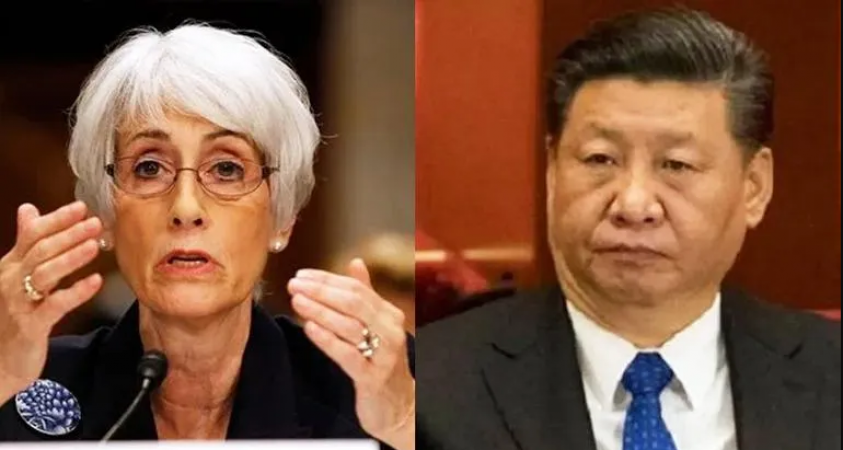
United States: Beijing has reduced its communication with the outside world on issues of international importance, but Washington will work to keep the lines of communication open, a State Department spokesman said in a brief statement before both sides Said after face-to-face. Meeting after US House Speaker Nancy Pelosi's visit to Taiwan.
US Deputy Secretary of State Wendy Sherman and China's Ambassador to the US Qin Gang met in Washington on Tuesday as relations between the two countries reached a new low. Earlier this month, Pelosi's visit to Taiwan sparked an unprecedented display of military force and diplomatic outrage from Beijing.
The United States continues to seek an open and constructive line of communication to manage our differences, but Beijing has ceased cooperation on some important communication channels and on many important issues that affect the entire world, including foreign countries. According to department spokesperson Vedanta Patel, at a briefing on Wednesday.
Patel declined to comment on the agenda or length of the meeting of the two senior diplomats on Tuesday, what key issues of international importance would be compromised by China's communication cutoff, or whether the meeting was aimed at stopping the two countries Had to install "Guard Rail". From walking into an unexpected conflict.
Speaking almost verbatim about the importance of open communication, Patel said, "I will repeat the answer I gave earlier." "I will state that we will continue to take calm and resolute action to maintain peace and stability in the region and to support Taiwan in accordance with our long-standing "one-China" policy.
Beijing promised to halt cooperation in several areas, including military ties and climate change, after Pelosi's visit on August 2. Pelosi and seven other Taiwanese officials and lawmakers who were considered "freedom fanatics" were subject to sanctions.
In addition, Patel said he had "no specific readout to provide" with regards to the US-China discussion on lifting or lifting the travel ban on Afghan Taliban officials.
An exemption that was part of a ban imposed in 2011 by the UN Security Council and allowing 13 Taliban officials to travel for conferences and talks with other countries recently expired. While the US, Britain and France - which are also permanent members of the UN Security Council - want the travel ban to remain in place, China and Russia want to extend the exemption to allow travel to continue.
According to Patel, other members of the Security Council should agree to the decision. “Once the Committee has concluded its discussions, we will undoubtedly have more to say. In general, we believe that continuing our limited partnership with the Taliban is essential to supporting the Afghan people.
China views Taiwan as a separatist province, which must be reunited through force if necessary. The self-governing island is not recognized as an independent state by many countries, including the US.
Washington's strategy, however, is to support Taiwan's ability to defend itself militarily as well as its growing influence in international matters such as crime, health and aviation, which Beijing opposes.
Following Pelosi's visit, Beijing sent an unprecedented number of military aircraft, ships, drones and artillery to the area around Taiwan, in a clear sign of intimidation and outrage, despite US allegations that it overreacted. .
In Beijing last week, Chinese Foreign Ministry spokesman Wang Wenbin announced that China "will not back down in defending its sovereignty and territorial integrity." "America can't make mistakes."
Xi Jinping hopes to lead China beyond Deng Xiaoping's "get rich" era
China’s Growth Sacrifice: Morgan to invest in Chinese assets
Vietnam's impending coffee shortage could drive up prices globally